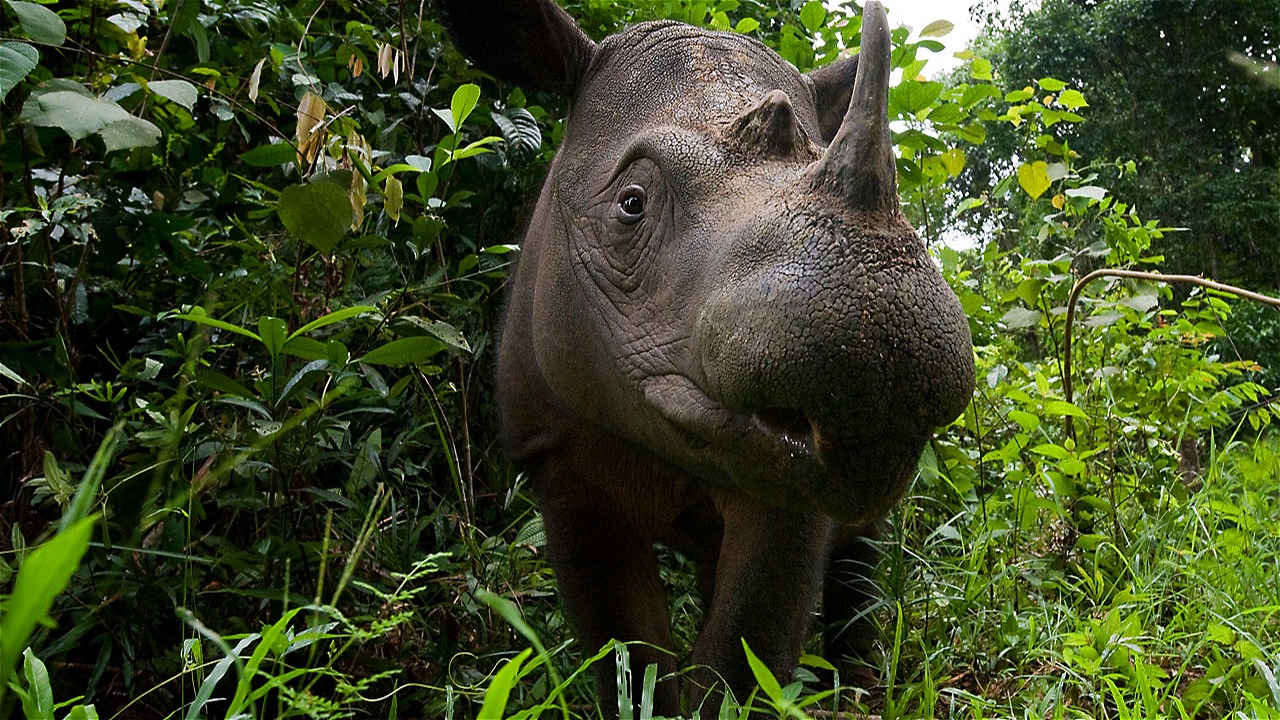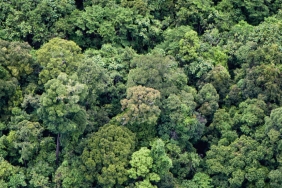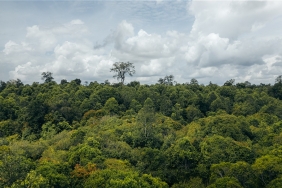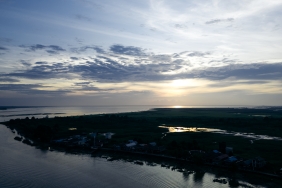FOREST ENCROACHMENT STILL THREATENS SUMATRAN RHINO CONSERVATION
By: Nur Arinta
The current state of the Sumatran Rhino is still alarming. The smallest species of the rhino family is threatened with extinction due to its degraded habitat. Several National Park areas in Sumatra, namely Gunung Leuser National Park, Bukit Barisan Selatan National Park, and in Way Kambas National Park, which is home to less than 70 Sumatran Rhino individuals, are still the target of encroachment by the community or by companies.
Based on data from the Ministry of Environment and Forestry, the total area of encroachment of Indonesia's forest areas in 2017 reached 764,554 hectares. Ironically, most of these encroachments occurred in conservation forests. The Director General of Environmental Management and Forestry Planning of the MoEF added that 361,153 ha of forest areas were converted into oil palm plantations. It has also been confirmed that the plantation land does not have a forest area release permit.
The continued clearing of land intended for oil palm plantations is due to the increasing demand for palm oil. Almost 70 percent of products consumed by urban communities are made from processed palm oil, and the consumption pattern of urban communities towards palm oil-based products is still very high. Therefore, the increase in the world's population, especially those living in urban areas, is very influential on the increasing number of forest conversion for oil palm plantations.
In addressing this threat, the MoEF through the Director General of Forest Protection and Nature Conservation (PHKA) issued Decree No. 42/KKH/A3/KSA.2/3/2017 on March 16, 2017 containing the Establishment of the Population and Habitat Monitoring Expert Panel Team. The task of this team is to monitor the population and habitat of Sumatran Rhinos that have been carried out by previous parties, and prepare population and habitat monitoring techniques that will be implemented by all parties in all landscapes. The focus of this team will save the Sumatran Rhino from all threats, including illegal forest encroachment that has occurred so far.
Not only the government and authorities can contribute to the conservation of the Sumatran Rhino, but you can also help save the Sumatran Rhino. How can you do that? Be a good buyer. Because by being a good consumer, especially in consuming processed forest products, you are participating in efforts to save the Rhino and its habitat. WWF-Indonesia in this case has launched the #beliyangbaik campaign. Start paying attention to what products have been certified from good forests, which do not come from conservation forest encroachment and pay attention to environmental methods. Such product certifications include the Roundtable on Sustainable Palm Oil (RSPO) or Indonesian Sustainable Palm Oil (ISPO) certification for palm oil products, and the Forest Stewardship Council (FSC) certification for wood products. What you buy shows what you support. Let's protect the Sumatran Rhino and its habitat together!





